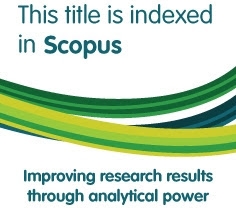Bioethics and Islamic Values: Assisted Reproductive Technology in the Context of Indonesia
Abstract
Assisted-reproductive technology (ART) has developed rapidly, and has brought controversies in terms of legality and ethics. Todays, majority of people rely on bioethics to address the issue. Yet, bioethics in its development, mostly is influenced by Western values such as autonomy, beneficence, non-maleficence, and justice. Some communities, like Islam, need to respond the issue using “Islamic bioethics”. This paper explores how Muslims in Indonesia tackle the issue and set up “Islamic bioethical values” accordingly. Our literary research found that some individual interpretation and judgments (ijtihād) have been given both by Islamic organizations [Muhammadiyah, Nahdlatul Ulama (NU), and Majelis Ulama Indonesia (MUI)] and outstanding ulama. Fatwas issued by the majorities indicate that although the methods of inquiries are different, the result is the same, that is rejecting the presence of a third party in the form of sperm, ovum, or uterus.
Keywords
Full Text:
PDFReferences
Abbasi-Shavazi, Mohammad Jalal, Marcia C. Inhorn, Hajiieh Bibi Razeghi-Nasrabad, and Ghasem Toloo. 2008. “The ‘Iranian ART Revolution’: Infertility, Assisted Reproductive Technology, and Third-Party Donation in the Islamic Republic of Iran.” Journal of Middle East Women’s Studies 4(2): 1–28.
Anees, M. A. 1994. “Human Clones and God’s Trust: An Islamic View.” New perspectives quarterly: NPQ 11(1): 23–24.
van Balen, F., and T. Gerrits. 2001. “Quality of Infertility Care in Poor-Resource Areas and the Introduction of New Reproductive Technologies.” Human Reproduction (Oxford, England) 16(2): 215–19.
Bennett, Linda Rae et al. 2012. “Indonesian Infertility Patients’ Health Seeking Behaviour and Patterns of Access to Biomedical Infertility Care: An Interviewer Administered Survey Conducted in Three Clinics.” Reproductive Health 9: 24.
Brockopp, J.E. 2003. Islamic Ethics of Life: Abortion, War, and Euthanasia. Columbia, SC: University of South Carolina Press.
Bruinessen, Martin van. 1999. “Traditionalist Muslims in A Modernizing World : The Nahdlatul Ulama and Indonesia New Order = NU Tradisi Relasi-relasi Kuasa Pencarian Wacana Baru.”
Bryant, John, and Linda Baggott la Velle. 2003. “A Bioethics Course for Biology and Science Education Students.” Journal of Biological Education 37(2): 91–95.
Cahill, Lisa Sowle. 2005. Theological Bioethics: Participation, Justice, and Change. Washington, D.C: Georgetown University Press.
Cohen, J. R. 1999. “In God’s Garden. Creation and Cloning in Jewish Thought.” The Hastings Center Report 29(4): 7–12.
Devolder, Katrien. 2005. “Human Embryonic Stem Cell Research: Why the Discarded-Created-Distinction Cannot Be Based on the Potentiality Argument.” Bioethics 19(2): 167–86.
Engelhardt, H. Tristram. 2000. The Foundations of Christian Bioethics. Lisse [The Netherlands], Exton, PA: Swets & Zeitlinger Publishers.
———. 2005. “Critical Care: Why There Is No Global Bioethics.” Current Opinion in Critical Care 11(6): 605–9.
Esposito, John L. 2008. Asian Islam in the 21st Century. Oxford University Press.
Fakhry, Majid. 1991. Ethical Theories in Islam. Leiden, New York: E.J. Brill.
———. 1997. Ethical Theories in Islam (Islamic Philosophy, Theology, and Science). 2 Exp Sub edition. Brill Academic Pub.
Glannon, Walter. 2001. Contemporary Readings in Biomedical Ethics. 1 edition. Wadsworth Publishing.
Greely, Henry T. 2016. The End of Sex and the Future of Human Reproduction. Harvard University Press.
Inhorn, Marcia C., and Soraya Tremayne. 2015. “Islam, Assisted Reproduction, and the Bioethical Aftermath.” Journal of Religion and Health 55(2): 422–30.
Leonard, Lori. 2002. “‘Looking for Children’: The Search for Fertility among the Sara of Southern Chad.” Medical Anthropology 21(1): 79–112.
Maguire, Daniel. 1996. On Moral Grounds. New Ed edition. The Crossroad Publishing Company, Inc.
Mahfudh, S. 2007. Solusi Problematika Aktual Hukum Islam: Keputusan Muktamar, Munas, Dan Konbes Nahdlatul Ulama, 1926-2004 M = [Ahkamul Fuqaha: Fi Muqarrarāt Mu‘tamar Nahdlatul Ulama]. Cet. 3. Surabaya: Lajnah Ta’lif wan Nasyr Jawa Timur.
Martini, Frederic, Judi Lindsley Nath, and Edwin F Bartholomew. 2012. Fundamentals of Anatomy and Physiology. 9th ed. San Francisco: Benjamin Cummings.
McCullough, Laurence B. 2002. “Philosophical Challenges in Teaching Bioethics: The Importance of Professional Medical Ethics and Its History for Bioethics.” The Journal of Medicine and Philosophy 27(4): 395–402.
McGee, Glenn. 2000. The Human Cloning Debate 2nd Edition. 2nd edition. Berkeley Hills Books.
Meirow, D., and J. G. Schenker. 1997. “The Current Status of Sperm Donation in Assisted Reproduction Technology: Ethical and Legal Considerations.” Journal of Assisted Reproduction and Genetics 14(3): 133–38.
Mudzhar, M.A. 1998. “Fatwa-Fatwa Majelis Ulama Indonesia (Seri INIS, #17).” Goodreads. http://www.goodreads.com/work/best_book/1918198-fatwa-fatwa-majelis-ulama-indonesia-sebuah-studi-tentang-pemikiran-huku (June 27, 2016).
Ombelet, W. et al. 2008. “Infertility and the Provision of Infertility Medical Services in Developing Countries.” Human Reproduction Update 14(6): 605–21.
Peek, Lori. 2005. “Becoming Muslim: The Development of a Religious Identity.” Sociology of Religion 66(3): 215.
Pellegrino, Edmund D. 1999. “The Origins and Evolution of Bioethics: Some Personal Reflections.” Kennedy Institute of Ethics Journal 9(1): 73–88.
Post, Stephen G. 2003. Encyclopedia of Bioethics (5 Volume Set). 3 Sub edition. MacMillan Reference Books.
Sajoo, Amyn B. 2004. Muslim Ethics: Emerging Vistas. London: I.B. Tauris.
Salim, Muhammad Kunju. 2001. Islam Ethics and Teachings. Kitab Bhavan,India.
Schenker, J. 1997. “Assisted Reproduction Practice in Europe: Legal and Ethical Aspects.” Human Reproduction Update 3(2): 173–84.
Somerville, Margaret A. 2000. The Ethical Canary: Science, Society and the Human Spirit. Viking Books.
Zuhdi, Masjfuk. 1988. Masail Fiqhiyah: Kapita Selekta Hukum Islam. Haji Masagung.
DOI: https://doi.org/10.15408/sdi.v24i1.2209
Refbacks
- There are currently no refbacks.

All publication by Studia Islamika are licensed under a Creative Commons Attribution-NonCommercial 4.0 International License.
Studia Islamika, ISSN: 0215-0492, e-ISSN: 2355-6145
View My Stats
